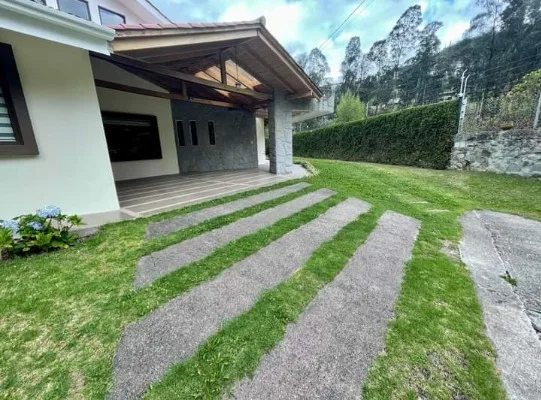A contradiction in political terms, Ecuador’s Rafael Correa’s ‘strong man’ approach keeps his popularity high
By Nick Miroff
In Latin America’s current era of big-personality politics, there may be no other leader who embodies as many apparent contradictions as Rafael Correa, Ecuador’s president.
Although he proudly identifies as a leftist, Correa is staunchly opposed to abortion, even in cases of rape, and has called gay marriage a “barbarity.” He relishes confrontation with Washington, despite the fact that the United States is Ecuador’s top trading partner and a major source of foreign tourists — as well as the place Correa earned his PhD in economics. And for nearly two years, Correa has sheltered WikiLeaks founder Julian Assange at Ecuador’s Embassy in London while he curbs press freedoms at home, even cracking down on political cartoonists.
Analysts in the region wonder whether Correa represents a new model of Latin American leadership: economically populist, socially conservative, quasi-authoritarian — and seemingly unbeatable at election time. Polls consistently put his approval rating between 60 and 85 percent, making him one of the region’s most popular leaders.
Correa, who was reelected to a third term by a huge margin last March, may have one more twist to add. After spending the past seven years concentrating power in the executive, he says he will not run for reelection when his current term ends in 2017, telling the government newspaper El Telegrafo: “It’s very damaging when one person becomes indispensable.”
It was a surprising observation from a leader who has remade Ecuador to revolve almost entirely around his rule. Correa dominates the country’s legislature through the party he founded, Alianza-PAIS, and has stacked the judiciary with his former cabinet members, removing obstacles to his agenda.
Walking away after his current term would also be a notable break with Correa’s leftist allies in the region, such as Bolivia’s Evo Morales, Daniel Ortega of Nicaragua and the late Venezuelan president Hugo Chávez, who have used the ballot box to weaken or eliminate term limits.
Correa’s detractors don’t believe the 50-year-old president has any interest in an early retirement. They see his brand of “21st century socialism” as little more than contemporary Latin American caudillismo — a media-savvy version of old-fashioned strongman rule. In fact, Correa revived talk of a third term recently, following local elections in which his political movement showed weakness; although he said he would consider it, he has so far not committed.
Unlike Chávez and his epic battles with Venezuela’s private sector, Correa maintains generally strong ties with Ecuador’s business community and has presided over a sustained period of economic growth and low unemployment. He has kept the U.S. dollar as Ecuador’s currency.
Felipe Burbano, a political analyst in Quito, said Correa is a master of “state activism,” projecting his presidency — and government spending — into every corner of the country of 15 million by reaching out to rural voters, slum residents and others who were often ignored in the past. Correa has plowed the OPEC country’s oil revenue into new schools, health clinics and infrastructure projects, especially new highways, while cutting the poverty rate from 37 percent to 27 percent from 2007 to 2012, according to official data.
Just as Venezuela’s Chávez took to the airwaves weekly with his “Hello President” program, Correa travels around Ecuador starring in a show called “Citizen Link.” Viewers see him fixing local problems, riffing on international affairs and bludgeoning critics. While he doesn’t sing as smoothly as Chávez, he sings anyway, and he’s often funny, charming, even philosophical.
“Correa combines personal charisma with strong state spending,” Burbano said. And thanks to years of $100-a-barrel oil, “he’s benefitted from revenues that no other leader has had.”
Correa dominates Ecuadoran politics so thoroughly that even local elections have become referendums on his rule. Victories this month by opposition candidates in races for mayor of Quito, the capital, and Cuenca, the country’s third-largest city, have been viewed as personal rebukes to him. He campaigned heavily for his political allies and attacked their rivals in often-strident terms.
“He went too far and overplayed his hand,” said Michael Shifter, president of Inter-American Dialogue, a Washington think tank that tracks Latin American affairs. “Correa remains very popular, and the opposition is weak and fragmented, but the elections raise questions about the depth and durability of the president’s support.”
“It should alert him to the risks of a popular backlash against his style of confrontational politics,” Shifter said.
Correa seemed to take the loss hard, calling it “an important setback for the Citizen’s Revolution” — the term he uses to describe his socialist political platform — and told the country that the results opened the door to an “anti-patriotic” and a pro-imperial (referring to the United States) right-wing takeover.
The loss of control of Quito by his party could make Ecuador “ungovernable,” he told reporters.
The comment appeared to play to fears of Ecuadorans who remember the turbulent period prior to Correa’s election in 2006, when the country had seven presidents during one 10-year stretch.
It was also a statement from a leader with little patience for checks on his power. Taking his cue from Venezuela’s Chávez, Correa has loaded Ecuador’s Supreme Court with allies and has moved aggressively to silence, even shut down, civil society organizations that challenge him.
Last year, when environmental groups and indigenous tribes protested plans to expand oil drilling in sensitive areas of the Amazon rain forest, including Ecuador’s Yasuni National Park, Correa responded with a heavy hand. One of the country’s most prominent environmental advocacy groups, Pachamama, was ordered shut down after being accused of stirring up rowdy protests.
“We are extremely concerned about Correa,” said José Miguel Vivanco, the Americas director of Human Rights Watch.
Under a new law decreed by Correa, any non-governmental organization can be closed if the government determines that it has undermined “public peace” or moved away from the objective for which it was created. Other provisions implemented by Correa require private media to report on issues that the government considers “of public interest,” a measure Vivanco called “one of the worst media laws in the Americas.”
Ecuador’s relations with the United States have steadily soured during Correa’s presidency. In addition to protecting Assange at the Ecuadoran Embassy in London, Correa further angered U.S. officials last year when he signaled a willingness to take in NSA leaker Edward Snowden.
Congress allowed Ecuador’s U.S. trade preferences to expire last year, exposing the country to new tariffs.
Correa has also blasted the United States for not helping Ecuador collect a $9.5 billion pollution fine against Chevron leveled by Ecuador’s highest court. A federal judge in New York dismissed the judgment this month, ruling that the U.S. attorney who sued the company engaged in bribery and fraud.
The strains with the United States have come despite Correa earning a PhD in economics at the University of Illinois, where he wrote a doctoral thesis exploring the downside of the economic liberalization policies adopted in Latin America during the 1990s.
Ecuadoran analysts say that while the country isn’t anti-American — it depends heavily on U.S. tourism — Correa’s clashes with Washington have played to nationalist sentiments about the country playing a bigger role in the world and displaying more independence.
One result of frayed trade relations with the United States has been Ecuador’s deepening financial dependency on Chinese loans. Correa has increasingly financed his expansion of public spending with oil-backed guarantees with Beijing, giving Chinese companies a lead role in expanding the oil-drilling push into Ecuador’s fragile Amazon region.
Credit: The Washington Post, www.washingtonpost.com; Photo caption: Correa during the recent mayoral campaign in Quito.
















